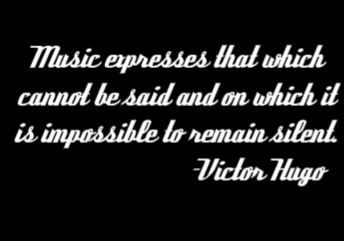Or click here to go to the TED page.
While I think the tinkering school is an excellent approach to allow people to learn to manifest problem solving through creativity – to allow them the time to begin to think less about immediate solutions and more about the process of actualizing ideas – I don’t personally see any way for it to currently be accomodated into our education system as it stands today. If you spend your time focussed on turning ideas into actuality, you limit the time in which to improve knowledge and have more ideas to work with; to counter, however, if you only focus on the acquisitions of facts and external processes, you limit the opportunity for the processes to be developed internally as understanding instead of rote memory. Our Schools today are curriculum-driven, with facts, figures and standards that must be met for achievement to be acknowledged – if you go into geometry class, you aren’t going to get an A simply for being able to show logical proof in the development any situation if you cannot also produce the theorems demonstrated in class and memorize the tables and operations of the opposite, adjacent and hypotenuse sides of a triangle.
The fundamental incompatibility of these two approaches is that as you focus more on one, you lose some of the other. A unit which is fact driven with the results in a final test is only measured in the number of correct answers and it is not designed to enhance creativity or process. While in a math course it is hoped that repeating the same steps multiple times helps the process sink in, it is for replication purposes and not complete understanding. Ultimately, there are certain levels of fact where there is no process and understanding is simply oriented by the ability to reproduce results and mimic steps along the way. Take, for example, Latin.
· Amo
· Amas
· Amat
· Amoa
· Amamus
· Amant
Does the teacher really care if I understand linguistically why there was a need for six distinct conjugations depending on the subject, or if I think I could understandably communicate the same distinctions with only five categories? Not particularly. That’s all well and good, but the Latin student who gets the A is the one that can rattle off in a single breath, “Amoamasamatamoaamamusamant!” The understanding is taken secondarily to the output.
With a tinkering school approach, you are given a task and simply told, ‘Go.’ You decide where to start, you decide the design, it is all down to you. If you try something and it doesn’t work, you don’t get an F; you get a list of things that need to be improved and the innovations you tried are lauded before and after. You learn how to process information internally and how to take the external process and turn it into internal development. I think that this is a skill we all need to learn. I feel lucky that I seem to have a passing amount of both and not only seek to learn, but seek to understand where the knowledge came from and where it might go in the future.
Gever Tulley said, “When faced with particularly difficult syntax or complexities, an interesting behavior manifests: decoration.” I find this particularly telling from my own experiences – not only is it true, it’s an important tool. I have countless times been writing a report in Excel and run into a roadblock in a formula that I needed to use to tie up the summary page. While I stared at it, I couldn’t figure out how to fix it. But then I took a break and I formatted the other worksheets. I color-coded positive and negative; I turned Yes and No fields into 0’s and 1’s. And then, by fiddling, coding, looking at the data in a different angle, the change to the formula just suddenly snapped. Going back later and looking at my thought process, I can see where it came from. But in the heat of the moment, when you simply need to get something done, decorating it is simply one way to let your mind work while you stay focussed on the project but not grinding away at the same point.
Gever Tulley said, “When faced with particularly difficult syntax or complexities, an interesting behavior manifests: decoration.” I find this particularly telling from my own experiences – not only is it true, it’s an important tool. I have countless times been writing a report in Excel and run into a roadblock in a formula that I needed to use to tie up the summary page. While I stared at it, I couldn’t figure out how to fix it. But then I took a break and I formatted the other worksheets. I color-coded positive and negative; I turned Yes and No fields into 0’s and 1’s. And then, by fiddling, coding, looking at the data in a different angle, the change to the formula just suddenly snapped. Going back later and looking at my thought process, I can see where it came from. But in the heat of the moment, when you simply need to get something done, decorating it is simply one way to let your mind work while you stay focussed on the project but not grinding away at the same point.

I'm not sure why, but this was flagged as a draft and not showing... The date still has it tagged as posted last week - sorry for any confusion.
ReplyDelete